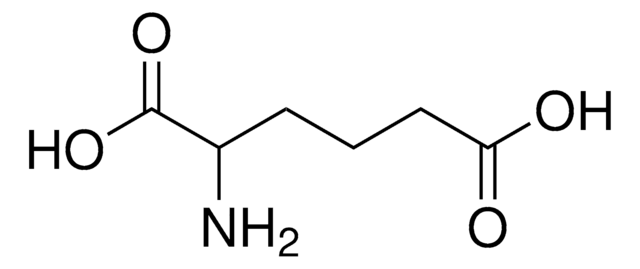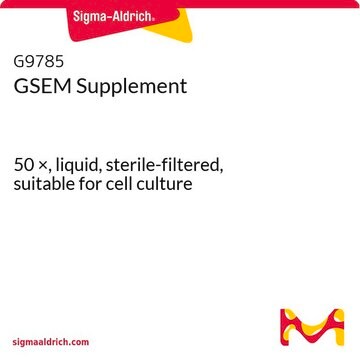A4284
L-Asparagine monohydrate
suitable for cell culture, BioReagent
Synonym(s):
(S)-(+)-2-Aminosuccinamic acid, (S)-2-Aminosuccinic acid 4-amide, L-Aspartic acid 4-amide
About This Item
Recommended Products
biological source
synthetic
Quality Level
product line
BioReagent
Assay
≥99% (TLC)
form
powder
technique(s)
cell culture | mammalian: suitable
color
white to off-white
mp
233-235 °C (lit.)
SMILES string
[H]O[H].N[C@@H](CC(N)=O)C(O)=O
InChI
1S/C4H8N2O3.H2O/c5-2(4(8)9)1-3(6)7;/h2H,1,5H2,(H2,6,7)(H,8,9);1H2/t2-;/m0./s1
InChI key
RBMGJIZCEWRQES-DKWTVANSSA-N
Looking for similar products? Visit Product Comparison Guide
Application
- as a media supplement to culture Black Mexican Sweet (BMS) cells
- to prepare Adams III media to supplement C+Y medium for culturing Streptococcus pneumoniae
- in an asparagine-rich diet to study the E0771 syngeneic breast tumor growth and survival in mice
Biochem/physiol Actions
Not finding the right product?
Try our Product Selector Tool.
Storage Class Code
11 - Combustible Solids
WGK
WGK 1
Flash Point(F)
Not applicable
Flash Point(C)
Not applicable
Personal Protective Equipment
Regulatory Listings
Regulatory Listings are mainly provided for chemical products. Only limited information can be provided here for non-chemical products. No entry means none of the components are listed. It is the user’s obligation to ensure the safe and legal use of the product.
JAN Code
A4284-25G:
A4284-500G:
A4284-VAR:
A4284-1KG:
A4284-100G:
A4284-BULK:
Choose from one of the most recent versions:
Already Own This Product?
Find documentation for the products that you have recently purchased in the Document Library.
Customers Also Viewed
Protocols
XTT assay protocol for measuring cell viability, proliferation, activation and cytotoxicity. Instructions for XTT reagent preparation and examples of applications.
MTT assay protocol for measuring cell viability, proliferation and cytotoxicity. Instructions for MTT reagent preparation and examples of applications.
Our team of scientists has experience in all areas of research including Life Science, Material Science, Chemical Synthesis, Chromatography, Analytical and many others.
Contact Technical Service










